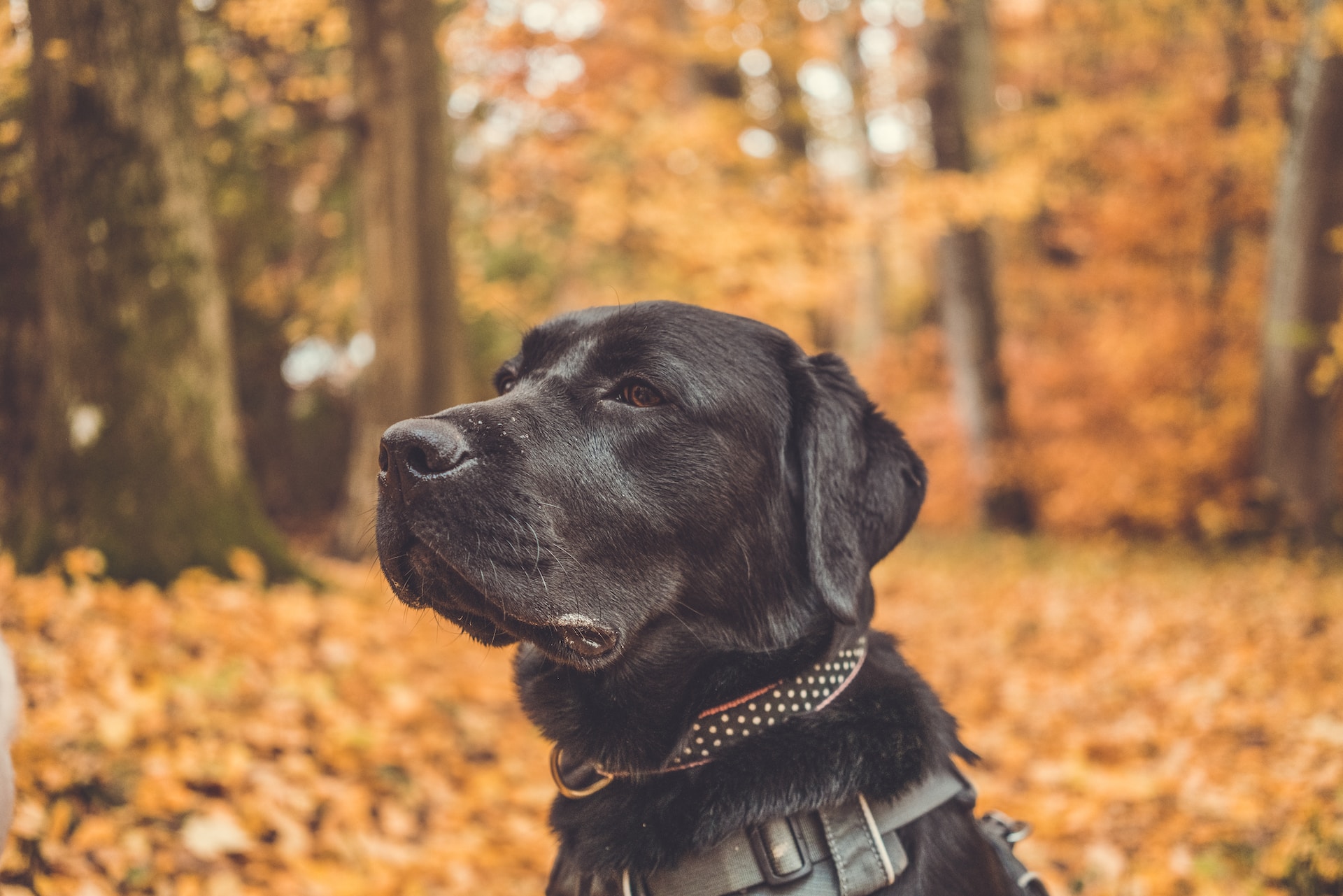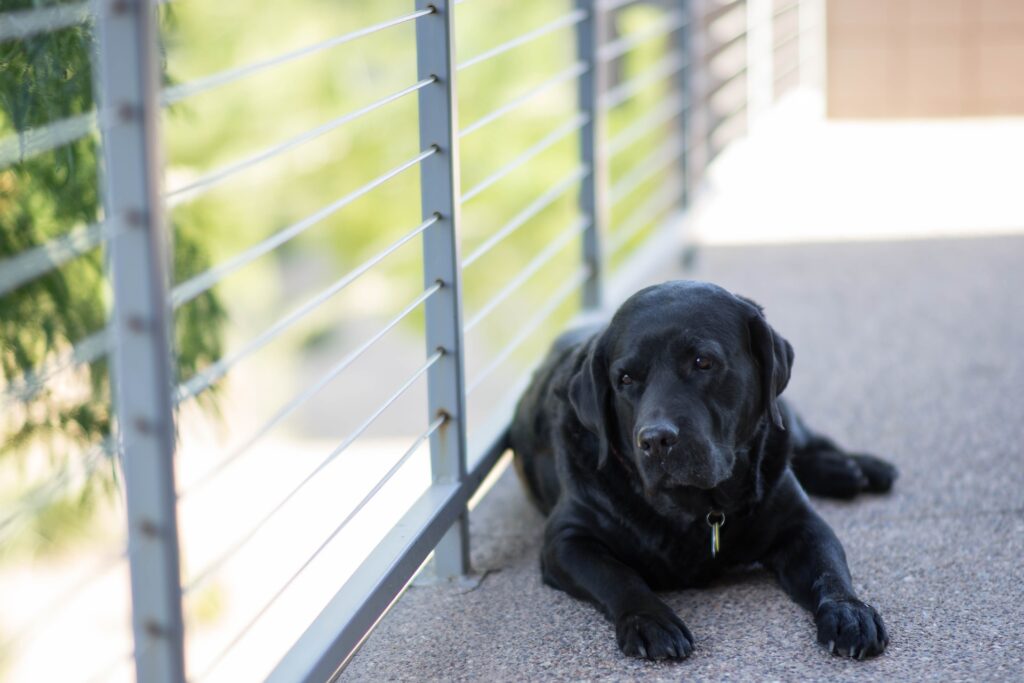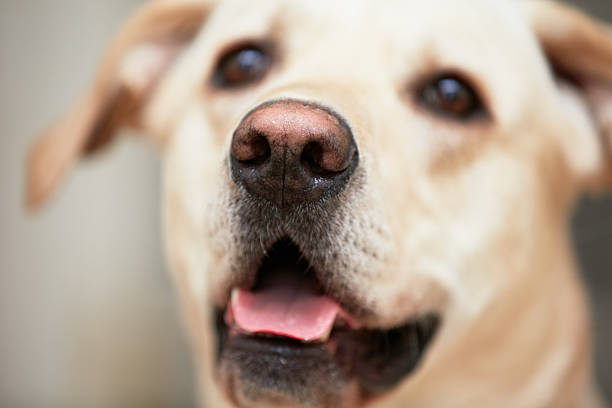Easy Dietary Solutions For Common Labrador Food Allergies
Do you want to know more about Labrador food allergies? As dog owners, one of our greatest concerns is ensuring our pups are well-fed and healthy. However, our beloved companions may suffer from food allergies in some unfortunate cases. Labrador food allergies are a common issue that many pet owners have to deal with, and it can be a frustrating and challenging experience.
Finding the right food for your four-legged friend can be daunting, but it is essential to maintain their health and well-being. This article will explore everything you need to know about labrador food allergies, including the common symptoms, causes, and treatment options. So if you have a labrador suffering from food allergies, keep reading, and we’ll provide you with the information and dietary solutions to help your pet get back to good health.
Understanding the Symptoms of Common Food Allergies in Labradors
Labrador retrievers are known to be active and playful dogs, but when they are constantly scratching, vomiting, or experiencing loose stools, it could be an indication of a food allergy. Food allergens can affect any dog breed, and dog owners need to recognize the labrador allergy symptoms early and address them promptly.
The first thing to understand is that food allergies can take time to become significant enough to show symptoms. Therefore, if your dog has a new diet and displays any of the following symptoms, it’s important to take it seriously, as it could indicate a food allergy.
👉Itching and Scratching
One of the most significant symptoms of food allergies in Labradors is itching and scratching. If the dog is constantly gnawing at its paws, scratching its ears, or rubbing its face on the floor, then it may be experiencing an allergic reaction. The itching is due to histamines in the body during an allergic reaction. These histamines cause swelling and irritation, leading to your dog’s excessive scratching.
👉Stomach Upsets
Another symptom of food allergies in Labrador retrievers is vomiting or loose stools. These symptoms are due to inflammation in the intestines and stomach, resulting from an allergic reaction to a particular food. Signs of nausea may be reduced appetite and drooling.
👉Ear Infections
If your Labrador retriever has been scratching its ears or having a persistent bad smell coming from their ears, it might be a sign of a food allergy. The yeast in the ears often thrives in an environment with too much moisture. Allergic reactions increase inflammation, which causes moisture and bacterial infections in the ear canal.
👉Skin Problems
Food allergies, when unchecked, could lead to skin problems, such as rashes, hair loss, and hot spots. The irritation of your Labrador’s skin could lead to bacterial infections or the growth of fungi and yeast, which can cause secondary infections.
👉Breathing Problems
In some severe situations, your Labrador may experience respiratory difficulty, which may be s a result of severe ‘angioedema.’ This allergic reaction causes swelling in the facial tissues, lips, tongue, or throat, making breathing difficult.
Labrador food allergies are something pet owners should not take lightly, and diagnosing and treating the issue as soon as possible is essential.
Identifying and Eliminating Allergic Triggers from a Labrador’s Diet
Allergies are not only uncomfortable for your pup, but they can also lead to serious health issues. Therefore, it’s crucial to identify and eliminate the allergens in your dog’s diet, and we’ll discuss how to do just that.
❗Know the Symptoms:
Before you can take steps to eliminate allergens from your Labrador’s diet, you need to know what symptoms to look for. Some symptoms of food allergies in dogs include itching, skin inflammation, ear infections, vomiting, diarrhea, and excessive licking or chewing. If your dog shows any of these signs, they likely have a food allergy.
❗Identify Potential Allergens:
Once you have identified the symptoms, it’s time to identify which foods your Labrador is allergic to. This elimination process involves removing one ingredient from their diet at a time and observing their reaction. Common allergens include beef, chicken, lamb, fish, dairy, soy, and wheat. Keep a food diary and note any changes in their symptoms to help narrow down the culprit.
❗Switch to Limited Ingredient Diet:
Once you have identified the allergens, it’s time to switch to a limited-ingredient diet. It means eliminating all foods that contain any of the known allergens. Instead, opt for diets that contain limited ingredients, such as a single protein source and a few carbohydrates from alternative grains like peas or potatoes.
❗Consult with Your Vet:
If your dog’s allergies are severe or if you’re not able to determine the cause of their symptoms, it’s important to consult with your veterinarian. They can perform tests to determine the allergen and suggest a specialized diet to meet your dog’s nutritional needs.
Diagnosing and Treating Labrador Food Allergies
Once you have identified the symptoms, your veterinarian will begin the diagnostic process. This typically involves a thorough physical examination to rule out other potential causes of your dog’s symptoms, including parasites and infections. If the vet suspects a food allergy, they recommend an elimination diet. It involves removing certain foods from your dog’s diet for a period of 8-12 weeks to see if the symptoms subside. If they do, this indicates that the removed food was the source of the allergy.
Treatment Options
Once you have identified the food causing your Labrador’s allergies, the next step is to find an appropriate treatment. Depending on the severity of the allergy, this may involve switching your dog to a prescription diet or hypoallergenic dog food. These types of food are specially formulated to minimize the risk of triggering dog allergies, and veterinarians commonly recommend them.
In some cases, it may also be necessary to treat the allergy symptoms. Your veterinarian may prescribe antihistamines, steroids, or antibiotics to help manage the symptoms and alleviate discomfort.
Natural Remedies and Supplements to Help Alleviate Symptoms of Food Allergies
Now, if you’re looking for a more natural approach to helping your Labrador manage their food allergies, some supplements and remedies can help.
Disclaimer:
It’s important to note that these are not meant to replace your vet’s prescribed treatment plan, and you should always consult with a veterinarian before administering any supplements or remedies.
✔️Apple Cider Vinegar
Apple cider vinegar is a potent natural remedy used for centuries for its healing properties. It is made through the fermentation of apple juice, transforming it into a magical elixir full of beneficial enzymes, acids, and probiotics. Interestingly, apple cider vinegar can serve as a powerful ally in relieving food allergies in Labradors.
It works by enhancing your dog’s digestive system and boosting its immune response, helping to mitigate the symptoms of food allergies. The acetic acid in apple cider vinegar can assist in breaking down food in the stomach, leading to better digestion and absorption, consequently reducing allergic reactions.
Incorporating apple cider vinegar into your Labrador’s diet is simple. You can add a small amount – around a teaspoon for smaller dogs and a tablespoon for larger ones like Labradors – into their drinking water daily. Alternatively, you can mix it into their food directly.
Remember, it’s important to introduce apple cider vinegar gradually to your dog’s diet and always ensure it is diluted, as its strong acidity can irritate your dog’s mouth and digestive system.
✔️Yogurt
Plain, unsweetened yogurt is a rich source of probiotics, beneficial bacteria supporting healthy digestion. Probiotics can be particularly helpful for Labradors suffering from food allergies as they aid in the breakdown and absorption of nutrients from the food, effectively reducing allergenic reactions.
Yogurt can soothe the digestive tract, enhance immune function, and help maintain a balanced gut flora, thereby decreasing the likelihood of food allergy reactions. The lactic acid bacteria found in yogurt can also help prevent harmful bacteria from colonizing your dog’s gut, which can further minimize allergic responses.
To incorporate yogurt into your Labrador’s diet, add it as a topping to their regular meals or offer it as a refreshing treat on warm days. Ensure you’re using plain, unsweetened yogurt, as sugars and artificial sweeteners can harm dogs. Start with small amounts, such as a teaspoon for small dogs or a tablespoon for larger dog breeds like Labradors, and gradually increase the quantity as long as your dog tolerates it well.
✔️Fish Oils and Vitamin E
Omega-3 fatty acids found in fish oils are renowned for their anti-inflammatory properties and can significantly manage food allergies in Labradors. These fats are essential for optimal health and can alleviate the inflammation caused by allergic reactions. Alongside fish oil, Vitamin E is a potent antioxidant, protecting your dog’s cells from oxidative stress and boosting the immune system to combat allergens.
Incorporating fish oils and Vitamin E into your Labrador’s diet can be straightforward and beneficial. To ensure purity, you can opt for a high-quality fish oil supplement, ideally derived from wild-caught fish like salmon or sardines. Remember to offer a balanced intake, usually around 1000mg of fish oil per 30lbs of your Labrador’s weight, but this can vary based on individual dietary needs.
As for Vitamin E, it’s often included in fish oil supplements as it prevents the oil from turning rancid. However, if it’s not, you can easily add a Vitamin E supplement to their diet. A typical dosage is around 100-400 IU per day for large dogs like Labradors.
Alternatively, you can offer fish as a part of their meals once or twice a week. Besides providing Omega-3, fish is also a lean, digestible protein source, making it a great addition to your Labrador’s diet.
Also, given the high-fat fish oil content, adjusting the daily caloric intake is essential to prevent weight gain.
✔️Chamomile Tea
Chamomile tea, a well-regarded herbal remedy, is renowned for its soothing properties and can benefit Labradors experiencing food allergies. The active compounds within chamomile, including bisabolol and matricin, have anti-inflammatory and antispasmodic properties, making it a valuable ally in alleviating gastrointestinal discomfort associated with food allergies.
Chamomile can ease digestion, soothe the intestinal tract, and decrease inflammation, reducing allergic reactions. Moreover, it can impart a calming effect, beneficial for dogs dealing with any discomfort or anxiety related to their allergies.
Incorporating chamomile tea into your Labrador’s routine can be a smooth process. After brewing the tea, allow it to cool down before offering it to your dog. You can either replace some of their drinking water with cooled tea or mix it into their meals. For Labradors, a small cup of chamomile tea a few times a week should suffice, but always monitor your dog’s response and adjust accordingly.
As with any new remedy, it’s crucial to consult with a veterinarian before introducing chamomile tea into your Labrador’s diet. While generally regarded as safe, chamomile may cause an allergic reaction in some dogs, so it’s important to introduce it slowly and watch for any adverse responses.
✔️Oatmeal Bath
An oatmeal bath can be an incredibly soothing experience for Labradors dealing with uncomfortable skin reactions from food allergies. It is packed with compounds called avenanthramides; oatmeal is widely recognized for its potent anti-inflammatory and antipruritic (anti-itch) properties. It can soothe inflamed skin, reduce itchiness, and restore moisture, providing instant relief for your Labrador.
Creating an oatmeal bath is both simple and cost-effective. Using a blender or food processor, begin by grinding plain, uncooked oats into a fine powder. The consistency should resemble flour. You’ll need about a cup of this oatmeal powder for a large breed like a Labrador. Fill your bathtub with warm water and stir in the oatmeal until it’s well-dispersed. Now it’s time to introduce your Labrador to the bath gently. Ensure your dog is completely soaked, focusing on areas of inflammation or discomfort. Let your Labrador soak in this calming solution for 10-15 minutes, then rinse with warm water. You can follow this routine once a week or as needed, based on your dog’s comfort and the severity of the skin issues.
✔️Epsom Salts
Epsom salts, scientifically known as magnesium sulfate, offer various therapeutic benefits and may be particularly beneficial for Labradors contending with food allergies. Epsom salts are renowned for their anti-inflammatory properties and can immediately relieve the itching and swelling associated with allergic skin reactions.
Incorporating Epsom salts into your Labrador’s routine is simple yet effective. Start by preparing an Epsom salt bath, much like the oatmeal bath described earlier. Dissolve around a cup of Epsom salts in a warm water bath, ensuring it’s thoroughly mixed. Gently immerse your Labrador in the bath, particularly in areas with visible inflammation. Allow your dog to soak in the Epsom salt bath for around 10-15 minutes, providing soothing relief for their itchy skin, irritated skin.
For localized allergies, an Epsom salt compress is a viable alternative. Soak a clean cloth in a solution of warm water and Epsom salts, then apply it directly to the affected area for about 10-15 minutes.
Despite being a straightforward and naturally-derived remedy, an Epsom salt bath should be used in moderation, typically no more than once a week, unless directed otherwise by your vet.
✔️Food Additives
Food additives are substances added to dog food to enhance its taste, color, longevity, or nutritional value. Some specific types, known as probiotics and prebiotics, can play a crucial role in managing food allergies in Labradors.
Probiotics are beneficial bacteria that help maintain a healthy balance in the dog’s gut, improving digestion and absorption of nutrients. They can strengthen your Labrador’s immune system, reducing the overactive responses that trigger food allergies. Prebiotics, conversely, serve as fuel for these helpful bacteria, ensuring their survival and proliferation within the digestive tract. Together, they create an environment less conducive to allergic reactions, easing symptoms associated with food allergies.
Incorporating food additives into your Labrador’s diet can be as simple as adding a supplement to their regular meals. Probiotic and prebiotic supplements, such as powders, capsules, or chewable tablets, come in various forms. You can sprinkle or mix these into your Labrador’s food, following the manufacturer’s or your vet’s dosage instructions. Alternatively, you can opt for dog foods that already contain these additives. Either way, it’s crucial to introduce these additives slowly to monitor your Labrador’s reaction and adjust accordingly.
✔️Coconut Oil
Coconut oil, hailing from the tropical palm tree Cocos nucifera, is a remarkable natural remedy that can greatly aid Labradors dealing with food allergies. This wonder oil contains a unique composition of fatty acids, predominantly lauric acid, with potent anti-inflammatory properties. These qualities make coconut oil particularly effective in soothing the skin irritations and digestive upsets often accompanying food allergies.
Lauric acid converts to monolaurin in the body, a compound known to combat harmful pathogens. By bolstering your Labrador’s immune system, coconut oil can help to modulate the body’s responses and lessen allergic reactions. Additionally, the oil’s antimicrobial and antifungal properties can help maintain a healthy gut flora, further aiding digestion and potentially reducing food sensitivity over time.
Incorporating coconut oil into your Labrador’s routine is straightforward. Start by adding a small amount of virgin, cold-pressed coconut oil to your dog’s food – a teaspoon for every ten pounds of body weight is often recommended. It’s important to gradually introduce coconut oil into your Labrador’s diet to monitor for potential adverse reactions. It can be mixed into your Labrador’s regular meals or used as a special treat, given its palatable taste that many dogs enjoy.
These natural remedies are just a selection of the many treatments available for Labradors dealing with food allergies. As always, your veterinarian is the best source to diagnose and advise on managing your Labrador’s food allergies. With their help, you can find an effective solution that works best for your dog, providing much-needed relief from discomfort and improving their overall well-being.
Frequently Asked Questions
Q: Can Labradors develop food allergies over time?
Yes, Labradors can develop food allergies over time. While an allergic reaction to food can occur the first time it’s consumed, it’s much more common for allergies to develop over time due to repeated exposure. Symptoms of food allergies in Labradors can range from mild to severe and may include itching, vomiting, diarrhea, and more. If you notice your dog exhibiting these symptoms, seeking veterinary treatment is essential.
Q: Are there hypoallergenic dog food options available for Labradors?
Yes, there are hypoallergenic dog food options available for Labradors. Hypoallergenic dog foods are specially formulated to contain minimal ingredients, reducing the risk of triggering an allergic reaction. These foods typically use alternative protein sources like fish or duck and often avoid common allergens like wheat, soy, and corn. If your dog has been diagnosed with food allergies, speak to your veterinarian about hypoallergenic food options.
Q: Is it possible for Labradors to outgrow food allergies?
It is rare for Labradors to outgrow food allergies. Once an allergy has developed. The body’s immune system “remembers” the allergen and will continue to produce an allergic response when exposed. However, some forms of allergy treatment, like immunotherapy, can help manage symptoms over time. If your dog has been diagnosed with a food allergy, work with your veterinarian to find the best treatment plan.
Q: How can I prevent my Labrador from developing food allergies?
While it’s not always possible to prevent food allergies from developing, there are steps you can take to reduce the risk. Feeding your dog a high-quality diet, avoiding excessive treats. And limiting exposure to potential allergens like pollen or mold can all help. If you are concerned about your dog’s health or suspect they may have a food allergy, don’t hesitate to contact your veterinarian.
Final Words
After researching and experiencing labrador food allergies firsthand, I cannot stress enough the importance of paying attention to what our furry friends consume. As pet owners, we are responsible for providing our labradors with the best possible nutrition to ensure their health and happiness. It’s remarkable how much of an impact a simple dietary change can have on a dog’s overall well-being. And by being diligent in monitoring their food, we can prevent discomfort and illness.
Your Labrador relies on you to make good choices in their diet. And it’s up to us to ensure they are receiving the necessary nutrients without any adverse reactions. Trust me; seeing your furry friend thriving and energetic is worth the effort.










